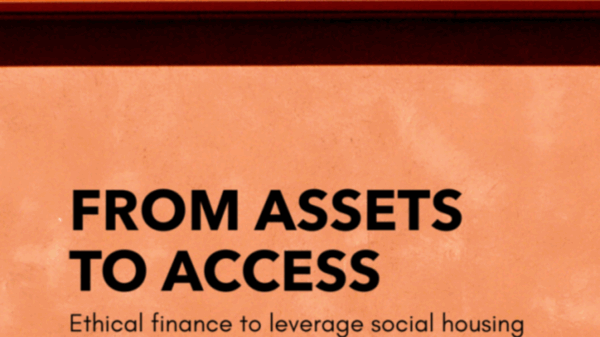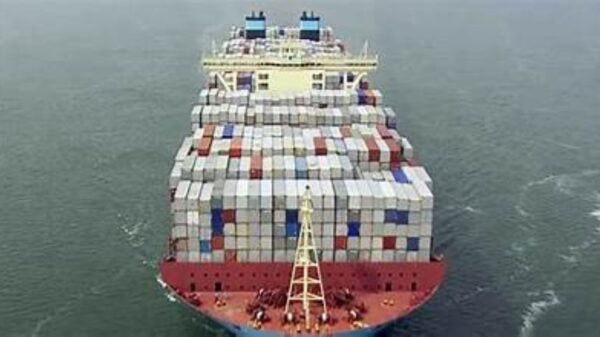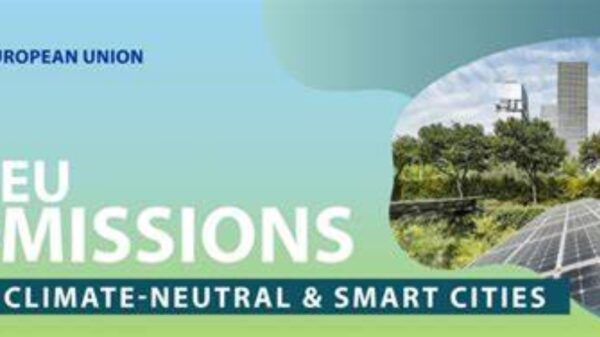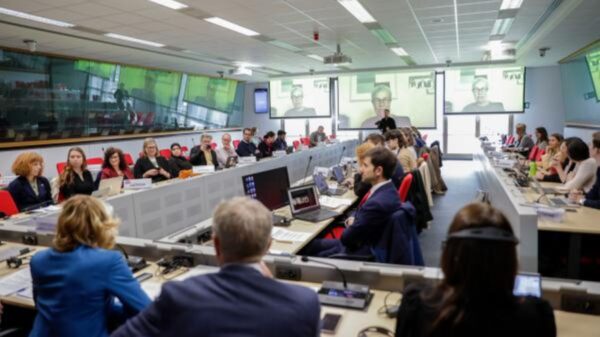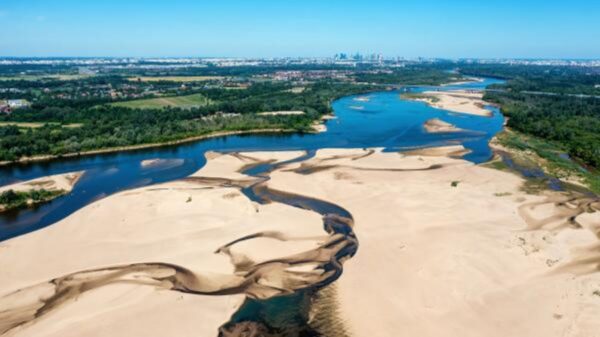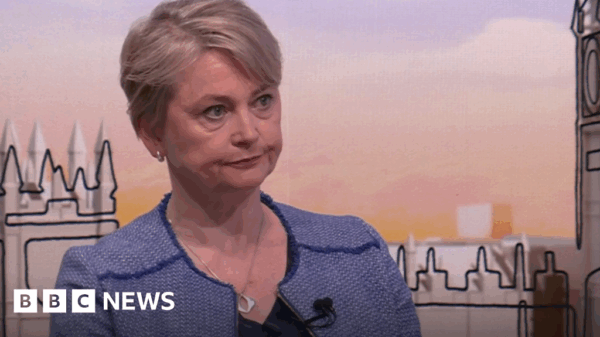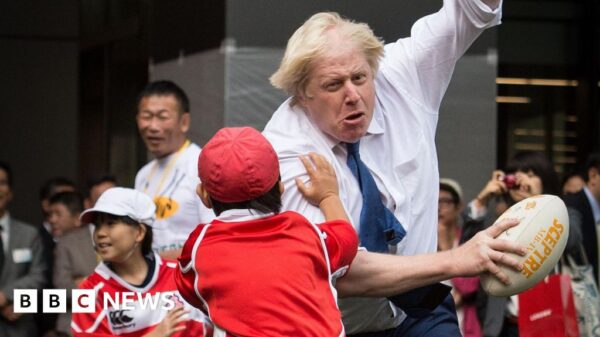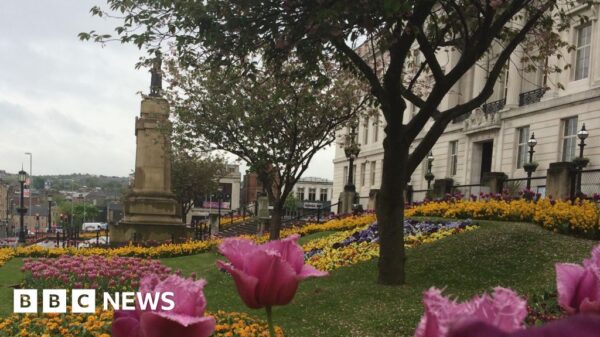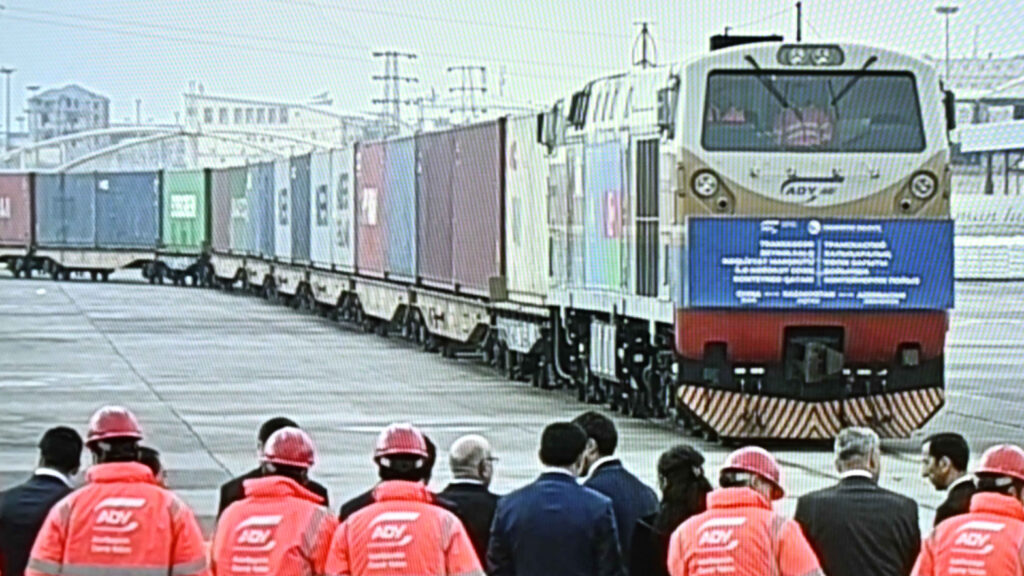A new railway route across Kazakhstan has brought a freight train from the Kazakh-Chinese transport and logistics centre in Xi’an to Absheron in Azerbaijan in just 11 days. Transit through the vast territory of Kazakhstan, by ferry across the Caspian Sea and then onwards through Georgia, either to Türkiye or across the Black Sea, used to take more than 50 days. The greatly improved journey time was marked at a ceremony in Baku, attended by the Presidents of both Azerbaijan and Kazakhstan, writes Political Editor Nick Powell.
The train hauling 61 containers filled with goods is expected to be just the first of an estimated 10 such trains to cover the 7,000 kilometres every month. It arrived during an official visit to Azerbaijan by Kazakh President Kassym-Jomart Tokayev. He and his host, President Ilham Aliyev, watched the train’s arrival by video link during a ceremony in the Azeri capital.
President Tokayev gave a speech emphasising how in conditions of global geopolitical turbulence, a new transport and logistics network across Eurasia is under construction, with close and fruitful cooperation between Kazakhstan and Azerbaijan playing a key role in this process. Through their joint efforts, the trade and economic potential of both countries is expanding.
“I believe that today’s event will go down as a golden page in the history of interaction and cooperation between Kazakhstan and Azerbaijan”, he said, adding that the two countries are natural strategic allies. “I would like to take this opportunity to express my gratitude to the government of the People’s Republic of China for its goodwill and cooperation”, he added.
Both Presidents congratulated transport workers on their achievement and described transit and transport as one of the many areas of cooperation between the two countries. President Iliyev also stated that Kazakhstan and Azerbaijan are benefiting other countries as well as their own by cooperating in the transit and transport sector.
“In this case, bilateral cooperation is part of multilateral cooperation within the framework of the implementation of both the Trans-Caspian International Transport Route and the Middle Corridor project”, he said. “The plans that were discussed today will ensure that the railways of our countries do not stand idle, and this kind of container train will become commonplace in our lives”. He too extended his congratulations to their Chinese partners.
The Transport and Logistics Centre of Kazakhstan, which recently began operating in China, is aimed at developing the Middle Corridor and attracting new cargo, significantly increasing the volume of freight transported along the route. A direct-to-consumer digital platform has been created and the railways of Azerbaijan and Kazakhstan are now integrated into a real-time tracking system for freight along the route.
This unified digital system is increasing the transparency and attractiveness of the Middle Corridor and a significant increase in the volume of cargo transported is planned throughout 2024. In January and February, freight volumes transferred between the two countries’ rail networks reached half a million tonnes, a 25% increase compared with the first two months of 2023.
During President Tokayev’s visit, he took part in the first session of the Azerbaijani-Kazakh interstate council. He and President Aliyev also signed several bilateral documents, including a memorandum on supporting small and medium-sized businesses in the two countries and an agreement on cooperation between Azerbaijan’s investment holding and Kazakhstan’s state wealth fund. Their state-owned oil companies signed an agreement on increasing volumes of Kazakh oil transported westwards through Azerbaijan.
Both countries are increasingly important partners for the European Union and not just in terms of providing a safe, secure and reliable transport route. In addition to their oil production and potential for supplying green energy in future, Azerbaijan is an important source of gas for the EU and Kazakhstan has major reserves of the raw materials vital for battery technology and other aspects of the green transition.

